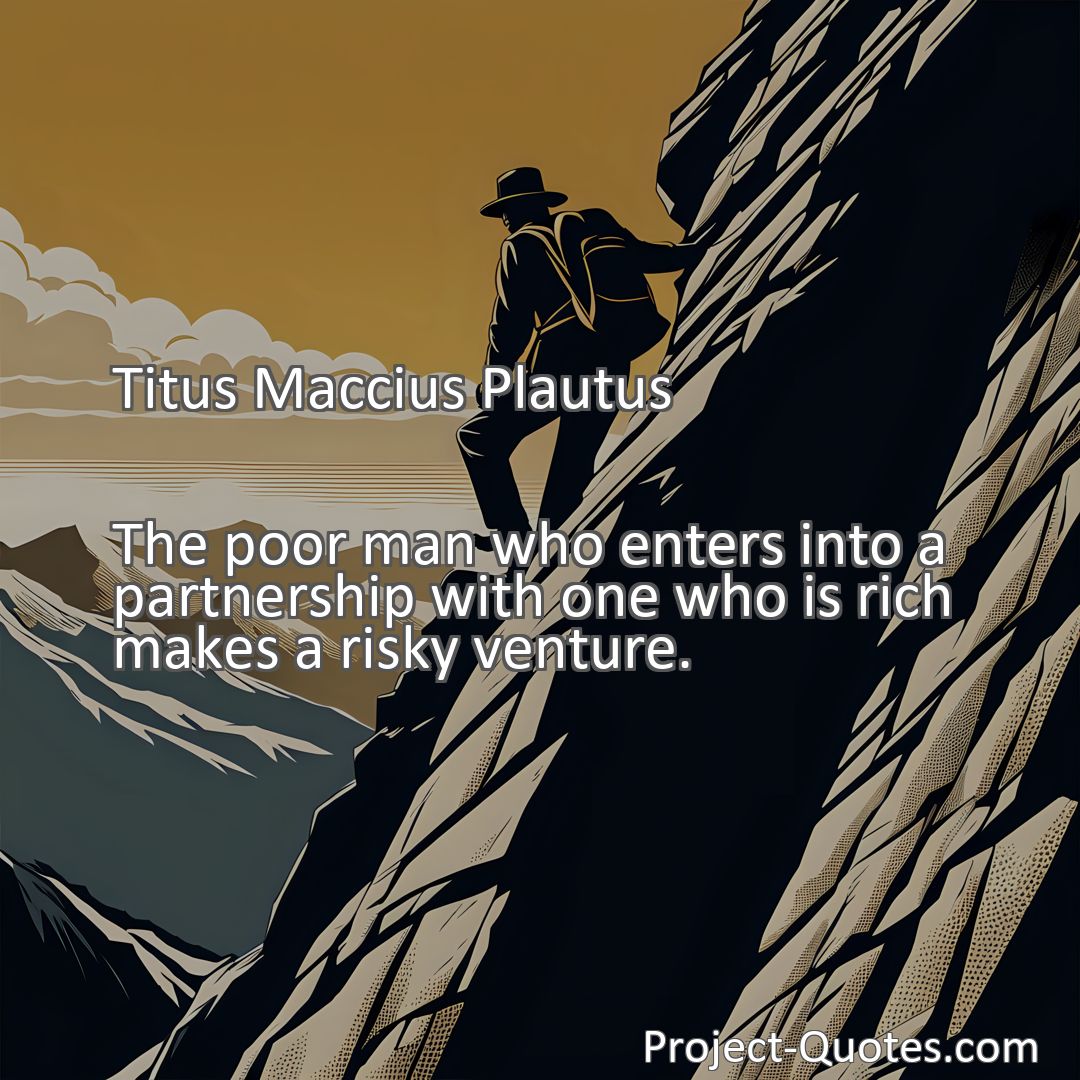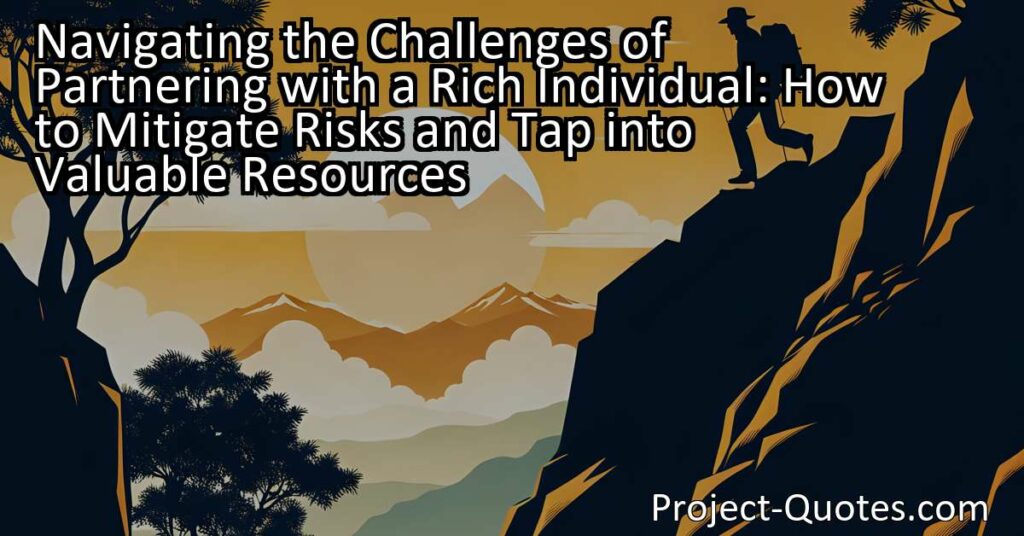The poor man who enters into a partnership with one who is rich makes a risky venture.
Titus Maccius Plautus
“Navigating the Challenges of Partnering with a Rich Individual: How to Mitigate Risks and Tap into Valuable Resources” explores the difficulties faced by a poor man when partnering with a wealthy individual. From potential exploitation to unequal distribution of profits, this article outlines strategies to overcome these challenges and benefit from the valuable resources that a rich partner can bring to the table.
Table of Contents
Meaning of Quote – The poor man who enters into a partnership with one who is rich makes a risky venture.
Entering into a partnership can be a risky venture, especially when there is a substantial difference in wealth between the parties involved. This quote emphasizes the challenges that a poor man may face when partnering with someone who is rich. In such a dynamic, the poor man may be at a disadvantage due to the potential power imbalance and the differing interests and priorities of the wealthy partner.
One of the key risks faced by the poor man in this scenario is the potential for exploitation. The wealthy partner may have more resources, influence, and connections, giving them an upper hand in decision-making and control over the partnership. This dynamic could lead to the poor man being taken advantage of or having their ideas and contributions overshadowed.
Additionally, the rich partner’s financial stability may create a noticeable disparity in investment capabilities. The poor man may struggle to match the financial contributions of their wealthier counterpart, which could result in an unequal distribution of profits and decision-making power. This imbalance can undermine the poor man’s confidence and sense of ownership within the partnership.
Furthermore, the rich partner’s priorities and goals may differ significantly from those of the poor man. The wealthy individual may be motivated primarily by increasing their wealth or expanding their influence, while the poor man may have a more immediate focus on meeting their basic needs and improving their financial situation. These conflicting interests can create tension and hinder effective collaboration, leading to a less stable and successful partnership.
Social dynamics and perceptions can also have an impact on the partnership. There may be societal biases or stereotypes that view the poor man as inherently less competent or valuable in comparison to their affluent counterpart. Such prejudices can marginalize the poor man’s contributions and undermine their credibility within the partnership. This can perpetuate power imbalances and limit the poor man’s ability to fully participate and influence decision-making processes.
In order to mitigate these risks, communication and trust-building are crucial. Open and clear communication is vital to ensure that both partners understand and respect each other’s perspectives and interests. This can help bridge the gap in power and allow for a more equitable exchange of ideas and resources.
Developing trust and establishing a shared vision for the partnership is equally important. The poor man should openly communicate their objectives, concerns, and expectations to the rich partner, fostering transparency and encouraging the wealthy party to recognize the value and potential of their less affluent counterpart. Similarly, the rich partner should demonstrate a willingness to listen, be open-minded, and acknowledge the strengths and expertise that the poor man brings to the table.
Another strategy for the poor man could be to seek out additional support and resources. This could involve reaching out to organizations or networks that provide guidance and assistance to individuals from low-income backgrounds. Such organizations may offer mentorship, access to funding, or legal advice to help level the playing field and enhance the poor man’s ability to engage in the partnership.
In certain cases, establishing clear roles and responsibilities within the partnership can help balance power dynamics. By delineating specific areas of expertise and decision-making authority, both partners can contribute their unique skills and knowledge, reducing the risk of one person dominating the partnership.
It is also important to recognize that entering into a partnership with someone wealthy can have its benefits. The rich partner may bring valuable resources, connections, and expertise that the poor man lacks. The partnership can provide the poor man with an opportunity for growth and learning, allowing them to gain valuable skills, knowledge, and exposure to new perspectives.
Furthermore, the rich partner may also benefit from the partnership. The poor man, with their firsthand experience of financial constraints and limited resources, can bring a fresh perspective and unique insights into solving problems. By working together, the partners can pool their respective strengths and overcome challenges that one party alone may have struggled with.
In conclusion, while partnering with someone who is rich can be a risky venture for a poor man, there are strategies that can mitigate these risks and foster a successful collaboration. The key lies in open communication, building trust, and establishing common goals and expectations. By addressing power imbalances, recognizing each partner’s value, and leveraging their respective strengths, the partnership has the potential to be mutually beneficial and yield positive outcomes for both parties involved.
I hope this quote inspired image brings you hope and peace. Share it with someone who needs it today!


